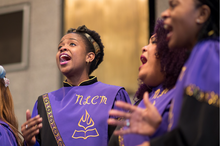




Aims of this Website
Information from research and people with hearing loss about optimizing music:
How hearing loss affects music listening and music making
How hearing devices (cochlear implants, hearing aids) affect music perception and enjoyment
CI=cochlear implants
HA=hearing aids
Tips for optimizing experiences with music
Tips to improve conversations in background music
Tips for coping, self-efficacy and self-advocacy
Prevention of music-induced hearing loss
Who is this website for?
People with hearing loss and their families
Hearing professionals
Musicians who wish to protect their hearing
Music therapists who work with people with hearing loss
Why is music and hearing loss important?
Music is all around us, from cradle to grave.
Music affects how we feel: People use music to relax, to change their mood, or for entertainment.
Music connects us with our cultures and beliefs. Music is part of cultural, spiritual, community, and familial traditions.
Music connects us with others. Participating in music with one's family and friends can increase social connection and quality of life.
Music brings back memories. Music can remind us of important experiences in our lives.
Music is a common part of everyday life. Music is often heard in the home and community, thus people with hearing loss are likely to encounter music every day.
Music can be used to improve listening skills. Music training can contribute to rehabilitation for improving CI benefit.

Hearing loss can impair music enjoyment, and reduce the quality of life.
Music listening can be less pleasant.
Music-making can be difficult.
Hearing conversation against background music can be frustrating.

How is this website organized?
Music-induced Hearing Loss
Music and Hearing Preservation
Music and Coping with Hearing Loss
Information for people with hearing loss and their families
Information for audiologists
Emotional and social losses that accompany the loss of musical enjoyment
The five stages of grief: from denial to acceptance
The transtheoretical model: Readiness for change
Music enjoyment, hearing loss, and self-efficacy: coping with hearing loss and stress
Optimizing music experiences through self-advocacy
Cochlear Implant (CI) and Music
Information for CI users and their families
Cochlear Implant (CI) technology and music
Different musical sounds affect listening enjoyment of CI users
The listening environment and music enjoyment
Background music as a barrier to communication
Musicians with CIs
Assistive listening devices for CI users
Music training to improve music perception and appraisal
Decision Trees for CI users
Information for audiologists
Cochlear Implant (CI) technology and music
Evaluating music perception of CI users
Optimizing music listening of CI users: a dynamic and multivariate process
The listening environment and music enjoyment
Background music as a barrier to communication
Musicians with CIs
Music training to improve music perception and appraisal
Music training examples for improving music perception
Hearing Aid (HA) and Music
Information for HA users and their families
Information for audiologists
Information for Music Therapists Who Work with Persons with Hearing Loss
Resources on Music, Hearing Loss, and Hearing Devices
About Us | Music and Hearing Loss Team
The top of webpages are marked with the following color-coded icons, which indicate the intended reader:
As you read this website, keep in mind the following:
No people with hearing loss are exactly alike.
Some information may be more applicable.
Pick and choose the information most useful for you.
The word, ‘music’ refers to many different kinds of sounds.
Some music may be easier to understand and more pleasant for YOU.
Music changes minute by minute; how good the music sounds may also change.
Use trial and error to figure out what sounds best to you.
This website contains information based upon research studies.
Research studies often emphasize “average” outcomes.
Your personal experience may be different from average—for better or for worse.
There is not a single or easy solution to ‘fixing’ musical enjoyment.
Different approaches help, depending upon the individual, the type of music, and the listening situation.
Most cochlear implant users say that
restoring musical enjoyment requires effort over time,
you need realistic expectations—music won't sound just like it did before hearing loss.
some music and listening environments are better than others.
Suggested readings:
Click on the links below to access the articles:
Gfeller, K., Driscoll, V., & Schwalje, A. (2019). Adult cochlear implant recipients’ perspectives on experiences with music in everyday life: A multifaceted and dynamic phenomenon. Front. Neurosci., 13, 1-19.
Gfeller, K., Mallalieu, R. M., Mansouri, AL., McCormick, G., O’Connell, R. B., Spinowitz, J., & Turner, B. G. (2019). Practices and attitudes that enhance music engagement of adult cochlear implant users. Front. Neurosci, 13, 1-11.
Gfeller, K., Veltman, J., Mandara, R., Napoli, M. B., Smith, S., Choi, Y., ... & Nastase, A. (2022). Technological and Rehabilitative Concerns: Perspectives of Cochlear Implant Recipients Who Are Musicians. Trends in Hearing, 26.
Click on these links for more information about hearing loss:
Basic information about hearing loss and speech
Detailed descriptions of cochlear implants and how they work
Surgery for cochlear implants
Information about pediatric habilitation and music
NOTE: Currently, there are more websites available about pediatric habilitation. Therefore, we are currently focusing this website on adult CI users.
Click here if you wish to access some basic sources on pediatric CI users and music.
Click here to review references used in preparation of this website.